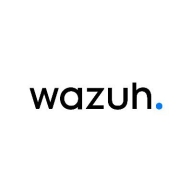

Wazuh and Grafana Loki compete in the security and logging solutions category. Wazuh seems to have the upper hand due to its extensive integration capabilities and customizability, although Grafana Loki excels in simplicity and cost-effectiveness.
Features: Wazuh offers seamless integration with environments and applications, uses MITRE ATT&CK correlation, and includes ELK stack for investigations. Its compliance monitoring aligns with frameworks like PCI DSS and CIS benchmarks, and as an open-source solution, it allows for wide-ranging customization. Grafana Loki provides user-friendly dashboards and efficient log processing from microservices, along with integration capabilities, making it a cost-effective solution for enterprises.
Room for Improvement: Wazuh lacks a native threat intelligence platform and faces scalability challenges, needing improved visualization and pre-configured use cases to streamline deployments. Grafana Loki's user interface is less intuitive, and its query sensitivity presents challenges. Enhancements in security monitoring, along with more streamlined alerting and dashboard configuration, are areas for potential development.
Ease of Deployment and Customer Service: Wazuh offers flexible deployment across diverse environments but faces challenges with complex setups and limited direct support for open-source users. Grafana Loki supports varied cloud environments with straightforward deployments, although customer support could improve for better user experiences. Active community support benefits both, yet Grafana Loki’s setup is notably simpler.
Pricing and ROI: Both Wazuh and Grafana Loki are available as free open-source solutions. Wazuh may involve higher total ownership costs due to support and maintenance needs, while Grafana Loki offers affordable cloud options to minimize expenses. Although both deliver high ROI, Wazuh's comprehensive offers are attractive to smaller enterprises. Nevertheless, significant cost savings are achieved over proprietary options through their open-source nature.
| Product | Market Share (%) |
|---|---|
| Wazuh | 11.4% |
| Grafana Loki | 7.6% |
| Other | 81.0% |


| Company Size | Count |
|---|---|
| Small Business | 7 |
| Midsize Enterprise | 8 |
| Large Enterprise | 3 |
| Company Size | Count |
|---|---|
| Small Business | 26 |
| Midsize Enterprise | 15 |
| Large Enterprise | 8 |
Grafana Loki is a powerful log aggregation and analysis tool designed for cloud-native environments. Its primary use case is to collect, store, and search logs efficiently, enabling organizations to gain valuable insights from their log data.
The most valuable functionality of Loki is its ability to scale horizontally, making it suitable for high-volume log data. It achieves this by utilizing a unique indexing approach called "Promtail," which efficiently indexes logs and allows for fast searching and filtering. Loki also supports log streaming in real-time, ensuring that organizations can monitor and analyze logs as they are generated.
By centralizing logs in a single location, Loki simplifies log management and troubleshooting processes. It provides a unified view of logs from various sources, making it easier to identify and resolve issues quickly. With its powerful query language, organizations can extract meaningful information from logs, enabling them to gain insights into system performance, identify anomalies, and detect potential security threats.
Loki's integration with Grafana, a popular open-source visualization tool, allows users to create rich dashboards and visualizations based on log data. This combination enhances the observability of systems and applications, enabling organizations to make data-driven decisions and improve overall operational efficiency.
Wazuh offers comprehensive security features like MITRE ATT&CK correlation, log monitoring, and cloud-native infrastructure. It ensures compliance and provides intrusion detection with high scalability and open-source flexibility, ideal for businesses seeking robust SIEM capabilities.
Wazuh stands out in security information and event management by providing efficient log aggregation, vulnerability scanning, and event correlation against MITRE ATT&CK. Its capability to integrate seamlessly with environments, manage compliance, and monitor files makes it suitable for cloud-native infrastructures and financial sectors. Despite its technical support needing enhancement and opportunities for improving AI integration and threat intelligence, its open-source nature and cost-effectiveness make it appealing. Users can leverage custom dashboards powered by Elasticsearch for precise data analysis, even though there is a desire for a more user-friendly interface and better enterprise solution integration. Deployment may be complex, but its features contribute significantly to fortified security postures.
What are the essential features of Wazuh?Industries like finance and cloud infrastructure heavily utilize Wazuh for its security strengths. By monitoring endpoints and ensuring compliance with frameworks, companies can improve security posture and swiftly detect anomalies. The platform's focus on event correlation and alerts for security incidents is particularly beneficial.
We monitor all Log Management reviews to prevent fraudulent reviews and keep review quality high. We do not post reviews by company employees or direct competitors. We validate each review for authenticity via cross-reference with LinkedIn, and personal follow-up with the reviewer when necessary.